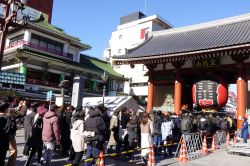
Originally published on metropolis.co.jp on November 2010

Illustrated by Phil Couzens
Coming second only to teeth sucking, J-pop is the one aspect of Japanese culture that Westerners love to hate. And let’s be honest, there are plenty of good reasons to loathe it: the talentless tarento, the excruciating English, and the indentured servitude of artists and gangland connections that characterize the industry, to name just a few.
But does the music itself really suck? I’ve long felt there was something else going on. In fact, a better question might be: why does J-pop grate so much on Western ears?
I suspect one reason J-pop irritates people is that, superficially, it resembles Western pop. It’s got the sampled beats and synth lines we’re accustomed to, as well as familiar production values.
And yet it’s all somehow wrong. J-pop relentlessly confounds our expectations. Melodies seem to start off in the same spot as in Western pop, but invariably end somewhere we didn’t expect, making us feel that a promise to speak our musical language has been betrayed. The contours are different: they’re based not on the major or minor but on pentatonic scales, and there’s no blue note. What’s more, the thin vocal timbres that seem so pleasing to the locals prove insufferable to Westerners raised on the full-throated likes of Aretha Franklin and Beyoncé.
Recent research detailed in books like Philip Ball’s The Music Instinct suggests that, as with language, people acquire a sense of musical “syntax” at a very young age, creating neural pathways that soon become entrenched. This can make it as difficult for adults to “get” foreign music as it is to learn a foreign language.
Since the frame of reference for J-pop is its Western trappings, we’re predisposed to judge it by Western standards. But maybe that’s a mistake: rather than a poor imitation of “our” pop music, J-pop may well be different at a more basic musical level.
One clue is that East Asians, who share a common musical heritage with Japan, appear predisposed to like it. Ayumi Hamasaki can fill stadiums in China but registers not even a blip in the Americas or Europe. J-pop stars like Hikaru Utada who have tried to make it in the West fall flat even with English-language albums.
On the other hand, the bands that succeed in the West are often exotic or seemingly so, be it the Kodo drummers or Boredoms. The “problem” with J-pop is that it’s too close to Western music to be exoticized, making the differences grate all the more.
While “Cool Japan” continues to sell well in Western countries, its successes have mainly been in the visual realm: anime, cosplay, art, butoh, and so on. Visual “language” appears to be far more universally accessible, and a musical equivalent to the overseas success of Takeshi Murakami and Hayao Miyazaki, or even a reprise of Kyu Sakamoto’s 1963 US number one “Sukiyaki,” may be some time coming.
The further away a nation is culturally, the more difficult it is to learn its language or enjoy its music. The West’s encounter with Asian music is recent, and like Asian tongues, it’s difficult to get to grips with. I’ve been here long enough to learn a fair bit of Japanese, and even come to enjoy a smattering of J-pop (note: there’s a lot of other Japanese music I like), but I’ll probably never “get” either like the natives do.
All of which brings me back to that original question: does J-pop actually suck? Well, the Japanese music industry might, but whether the actual music does is a more problematic issue. Your answer may say more about you, where you come from and whether you believe objective standards can be applied to culture, than the quality of the music itself.





